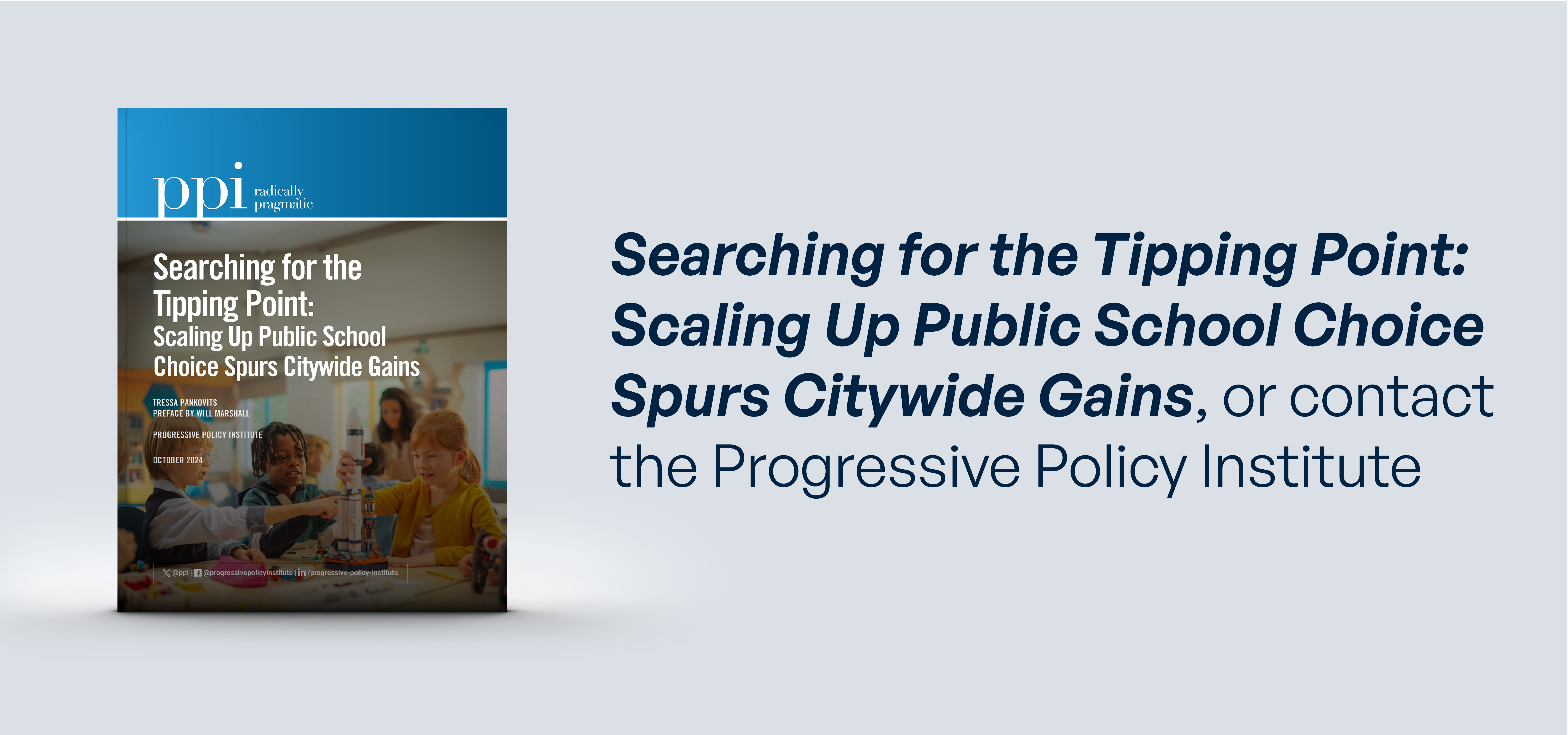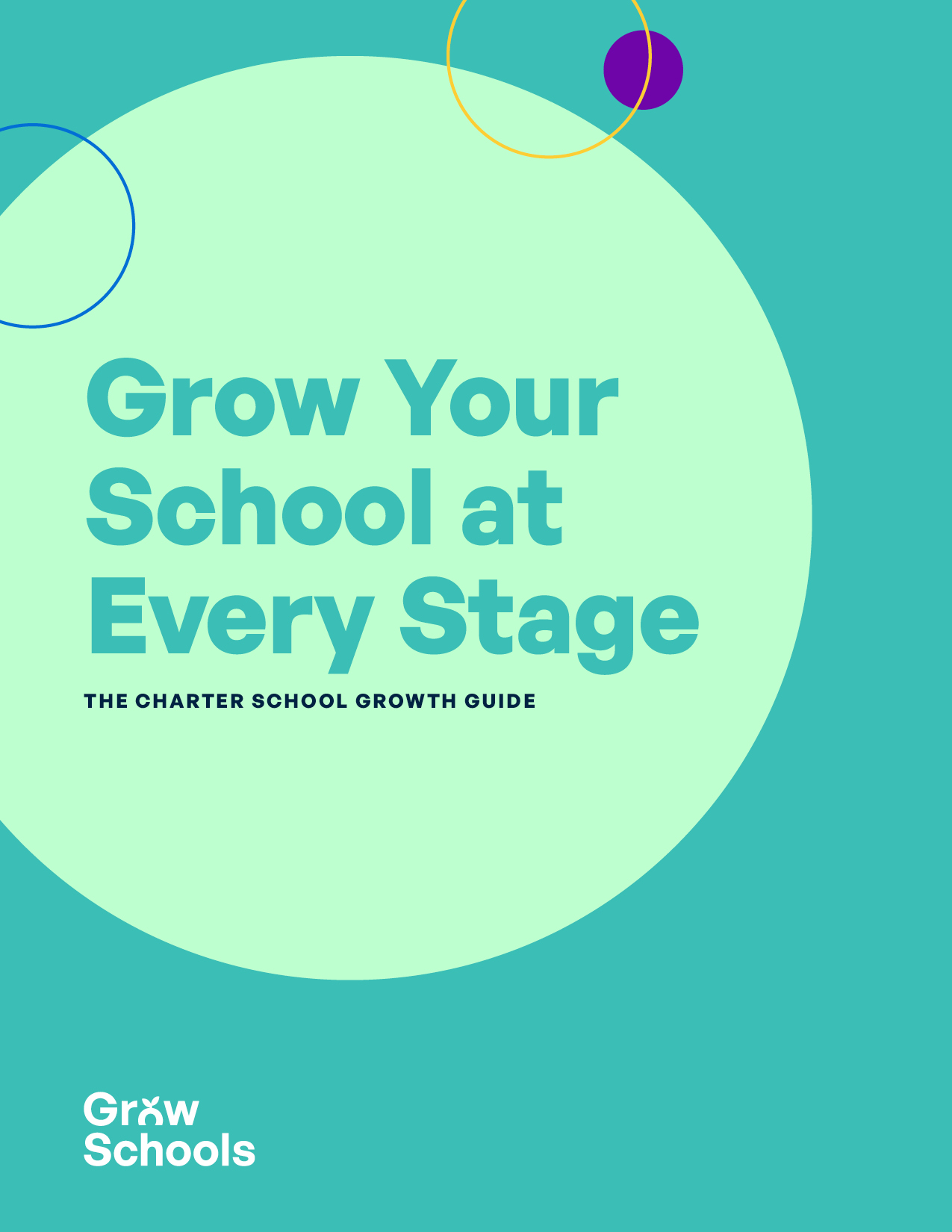Charter schools are reshaping education across the country, and new evidence suggests that increased school choice not only benefits charter students but also drives improvements in traditional district schools. A recent analysis from the Progressive Policy Institute (PPI), led by Tressa Pankovits, offers compelling evidence that cities with significant charter school enrollment improved academic outcomes for all students—including those who remain in district-run schools.
The Evidence for a Narrowing Achievement Gap
The PPI analysis examined 10 U.S. cities where at least one-third of students attend public charter or charter-like independent schools. In these cities, which have large populations of low-income students, the data reveal a significant narrowing of the achievement gap between low-income students and the statewide average. Over the past decade (2010-2011 to 2022-2023), the proficiency gap closed by 25-40%, showing that low-income urban students are catching up to their statewide peers.

In all 10 cities analyzed, the trend was consistent: where charter schools accounted for at least 33% of enrollment, academic gaps diminished. New Orleans, with its 100% charter enrollment, serves as a particularly striking example of this gap-closing effect, demonstrating that as charter school enrollment increases, the benefits for low-income students grow stronger.
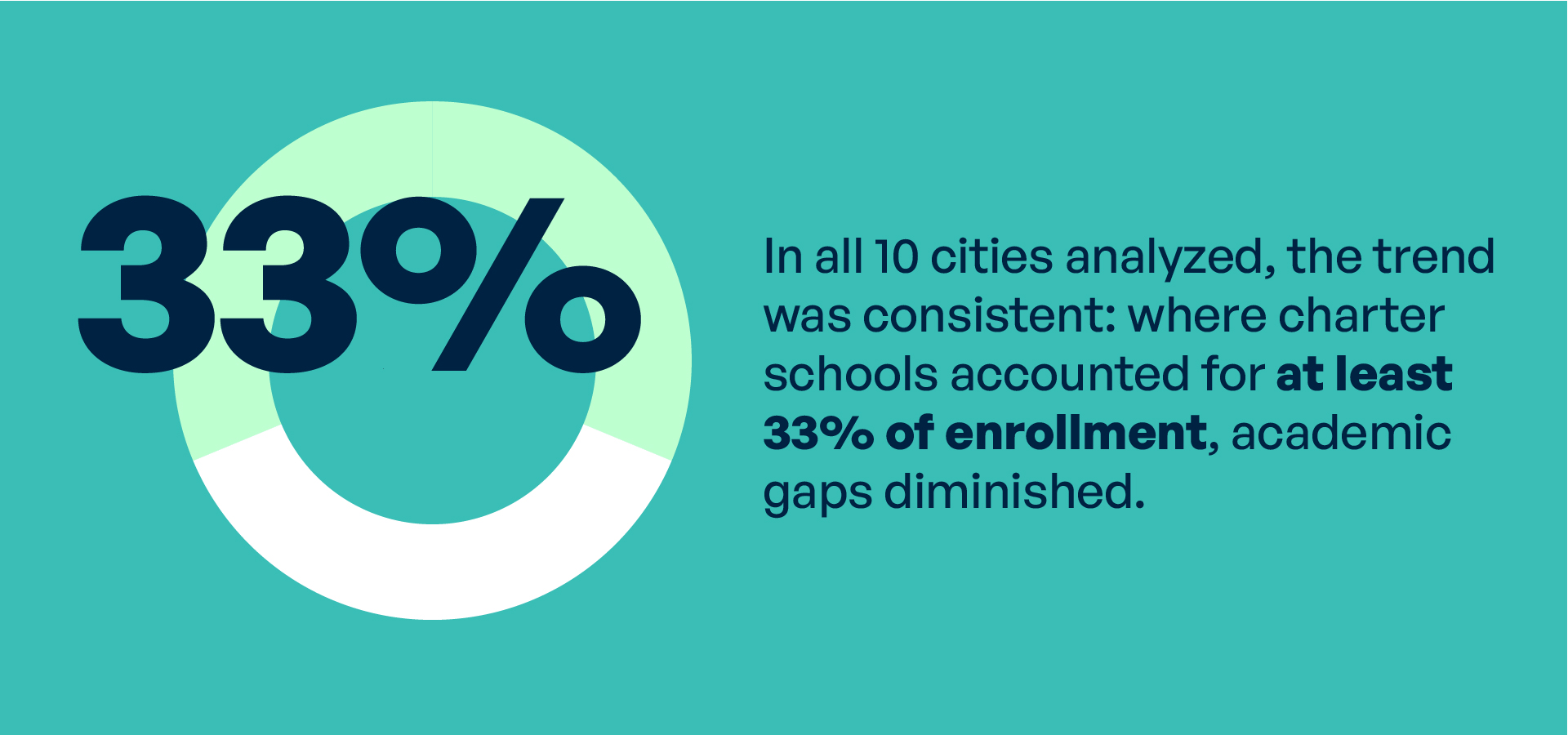
Spotlight on Camden and Indianapolis
Two cities illustrate the impact of charter school expansion particularly well:
- Camden, NJ: With 68% of students attending public charter schools, Camden saw a 42% reduction in the proficiency gap between low-income students and their statewide peers over the last decade. This achievement underscores the potential for charter schools to drive improvements not only for their own students but also for those in district schools.
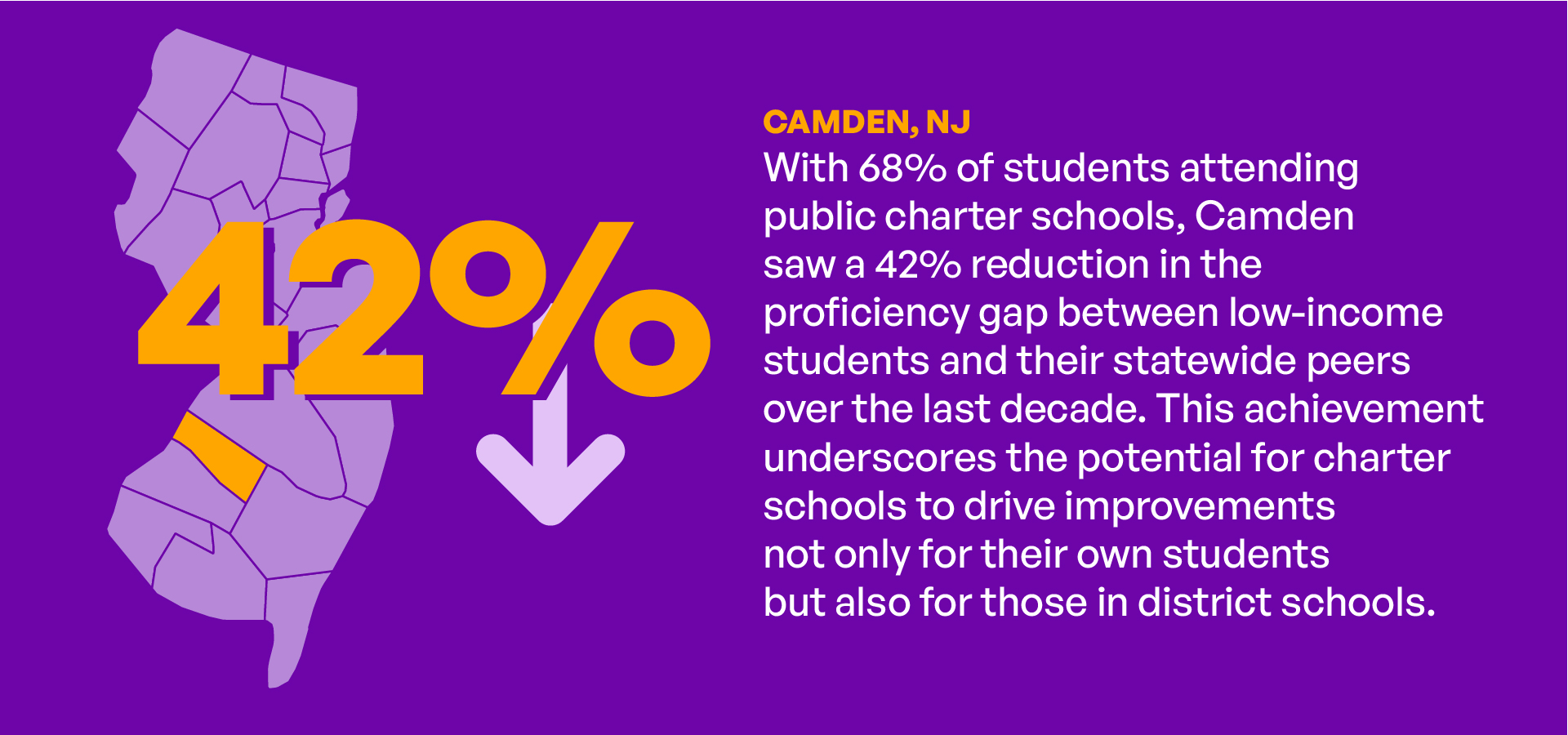
- Indianapolis, IN: In Indianapolis, where 58% of students are in charter schools, the proficiency gap for low-income students narrowed by 23%. This shows a citywide uplift in academic performance, suggesting that the benefits of charter schools extend beyond their own walls.
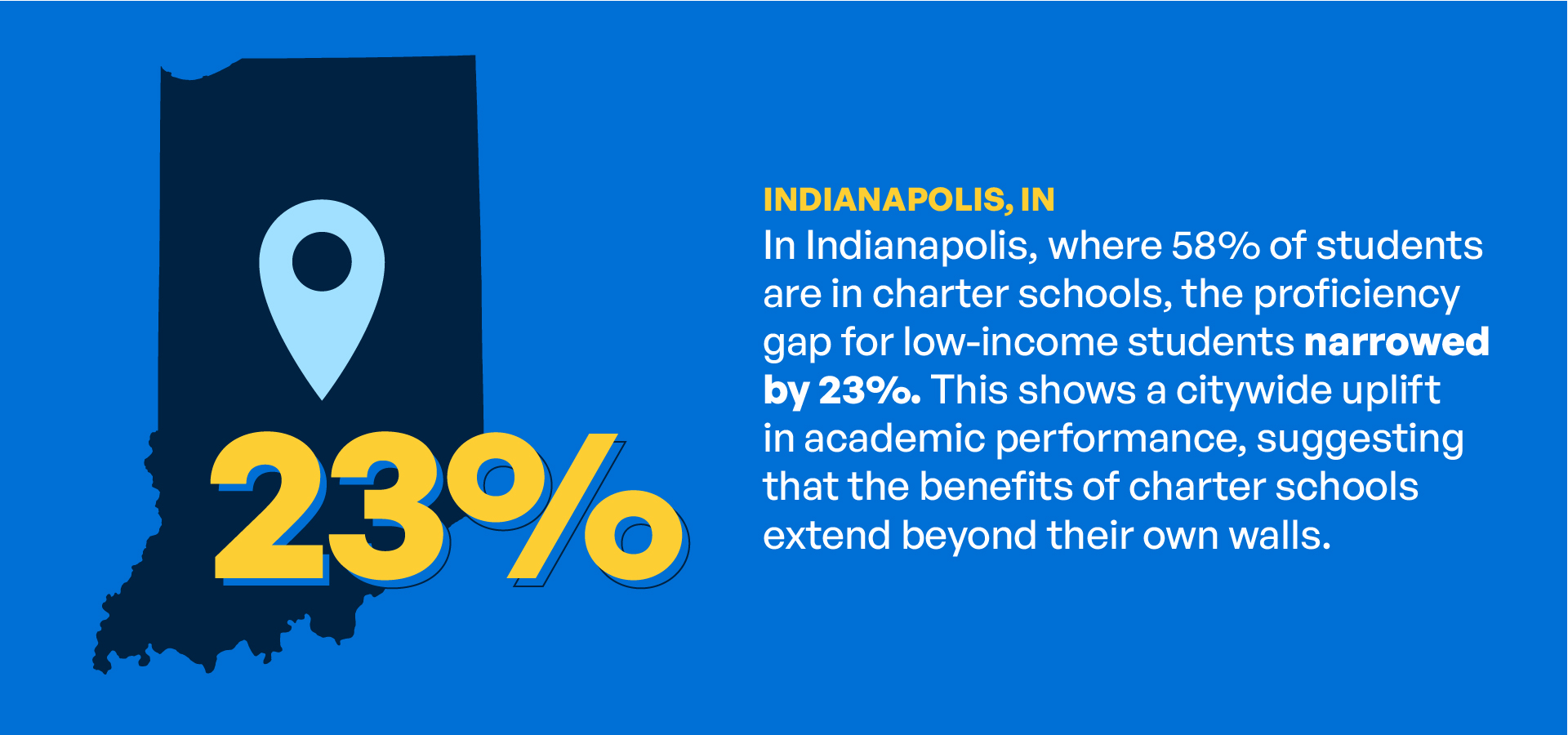
A “Rising Tide” for All Students
The findings contradict the argument that charter school growth harms students in traditional district schools. Instead, the data suggest a “rising tide” effect where the introduction and expansion of charter schools generate healthy competition that leads to better educational outcomes across the entire system. As charter enrollment increases, district schools may feel motivated to adopt innovative practices, improve curriculum, and focus more intently on student achievement.

The findings from PPI’s analysis add to the growing body of evidence that charter schools are not just an alternative education option—they are a catalyst for broader educational improvements. By expanding school choice, cities can create an environment where all students, regardless of the type of school they attend, can benefit from higher standards and innovative practices.
For more insights into the analysis and recommendations, read the full report, Searching for the Tipping Point: Scaling Up Public School Choice Spurs Citywide Gains, or contact the Progressive Policy Institute to request a printed copy.
